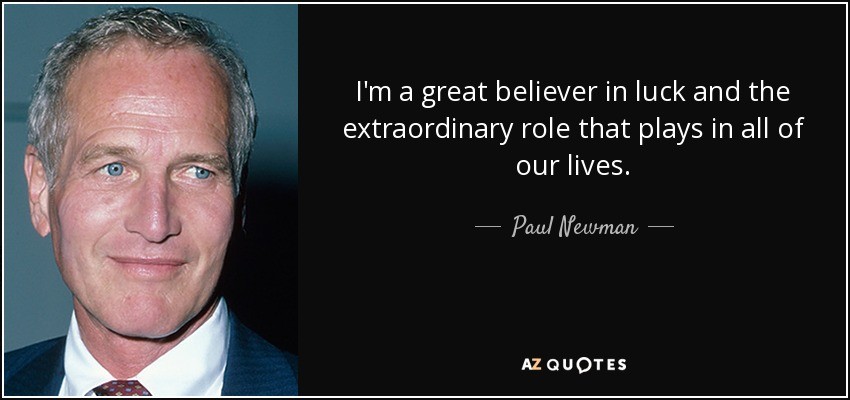Why Some People Are Always Lucky – Science Explains!


Why Some People Are Always Lucky – Science Explains!
El Valle Grita – Why some people are lucky Have you ever met someone who always seems to be in the right place at the right time? They land dream jobs effortlessly, win giveaways, and avoid disaster as if guided by an invisible force. It might seem like pure chance, but science suggests otherwise. Researchers have uncovered that why some people are lucky has less to do with fate and more with mindset, behavior, and neuroscience. Could you train yourself to be luckier? Let’s find out.
The Science Behind Luck
Contrary to popular belief, luck isn’t just about random chance. Psychologists argue that lucky people create their own fortune by recognizing opportunities, staying optimistic, and maintaining an open mindset. Dr. Richard Wiseman, a psychologist who spent over a decade studying luck, found that lucky individuals share certain habits that increase their chances of success.
Brain activity also plays a role. Neuroscientists suggest that lucky people tend to have higher levels of dopamine, a neurotransmitter that enhances motivation, awareness, and positive thinking. This means their brains are wired to notice opportunities that others might overlook.
The Habits of Lucky People
Lucky people expect good things to happen, and this belief influences their actions. Research shows that an optimistic outlook leads to increased resilience and creativity. When faced with setbacks, lucky individuals see them as learning opportunities rather than failures, allowing them to keep moving forward.
They Recognize and Seize Opportunities
Opportunities often present themselves in subtle ways. Lucky people tend to be more observant and open to new experiences, making them more likely to recognize potential breaks when they appear. Instead of dismissing chance encounters or unexpected changes, they embrace them.
They Trust Their Intuition
Gut feelings are more powerful than most realize. Studies show that lucky people often rely on intuition when making decisions. This ability stems from the brain’s subconscious processing of patterns and past experiences, allowing them to make quick yet effective choices.
They Take Calculated Risks
Being lucky isn’t about being reckless; it’s about taking smart risks. People who experience more good fortune aren’t afraid to step outside their comfort zones. They make bold moves but also gather enough information to minimize potential downsides.
They Stay Social and Build Strong Networks
Networking plays a major role in creating luck. Socially active people meet more individuals, hear about more opportunities, and have more chances to receive unexpected help. Lucky individuals maintain diverse connections, allowing them to tap into new opportunities at the right time.
READ MORE :MORON Cafe Kanazawa: From Curry to Cheesecake, Discover the City’s Top Spot
Can You Become Luckier? Science Says Yes
The good news? You don’t have to be born lucky to enjoy the benefits. Science-backed techniques can help anyone become luckier by adopting the mindset and habits of fortunate people.
Train Your Brain to Spot Opportunities
Luck isn’t about miracles; it’s about awareness. By practicing mindfulness and staying present, you can improve your ability to recognize opportunities that others miss. Try keeping a journal of positive experiences and unexpected opportunities to train your brain to notice them.
Adopt a Growth Mindset
The way you view challenges affects your success. Instead of seeing failure as a dead end, treat it as a stepping stone. Lucky people believe setbacks are temporary and that effort leads to improvement.
Be Open to New Experiences
Routine can make life predictable, but luck thrives on novelty. Trying new activities, meeting new people, and embracing uncertainty can expose you to unexpected opportunities.
Enhance Your Intuition
If you tend to overthink decisions, try listening to your gut feelings more often. Practices like meditation and mindfulness improve intuition by helping you connect with your subconscious mind.
Expand Your Social Circle
Building relationships with people from diverse backgrounds increases the number of opportunities that come your way. Join networking events, engage in conversations, and be genuinely interested in others.
The Connection Between Luck and Hard Work
While luck plays a role in success, it often works alongside effort and persistence. Even people who seem naturally lucky put in the work behind the scenes. The difference is that they align themselves with opportunities, prepare for them, and act when the time is right.
Thomas Jefferson famously said, “I’m a great believer in luck, and I find the harder I work, the more I have of it.” This highlights the undeniable connection between preparation and good fortune.
Why some people are lucky isn’t just a mystery—it’s a science-backed phenomenon rooted in mindset, awareness, and action. By shifting your perspective, developing key habits, and staying open to new experiences, you can increase your chances of encountering good fortune.
Luck isn’t about destiny; it’s about positioning yourself for success. So, why not start today? Change your mindset, stay open to opportunities, and let luck find its way to you!